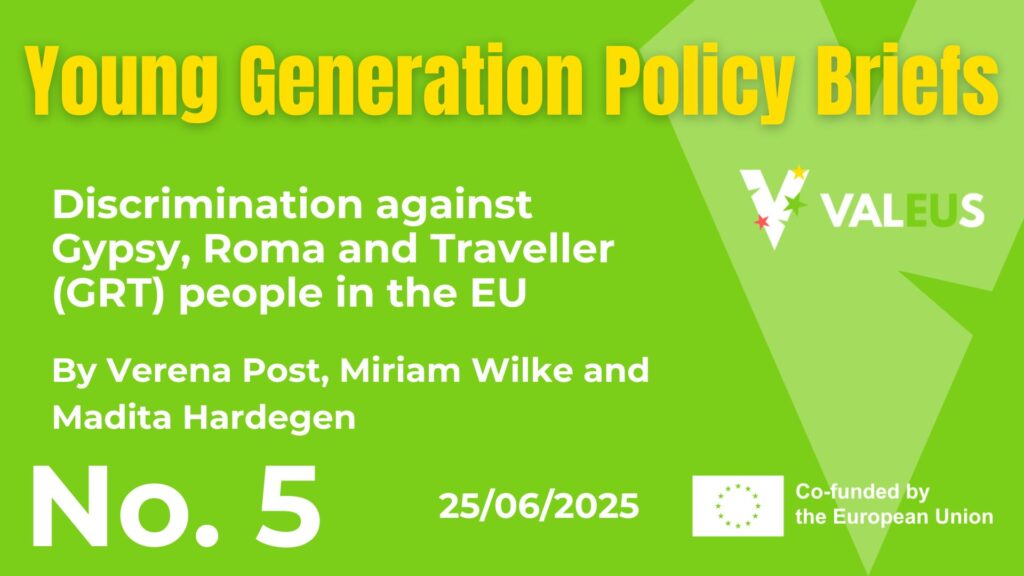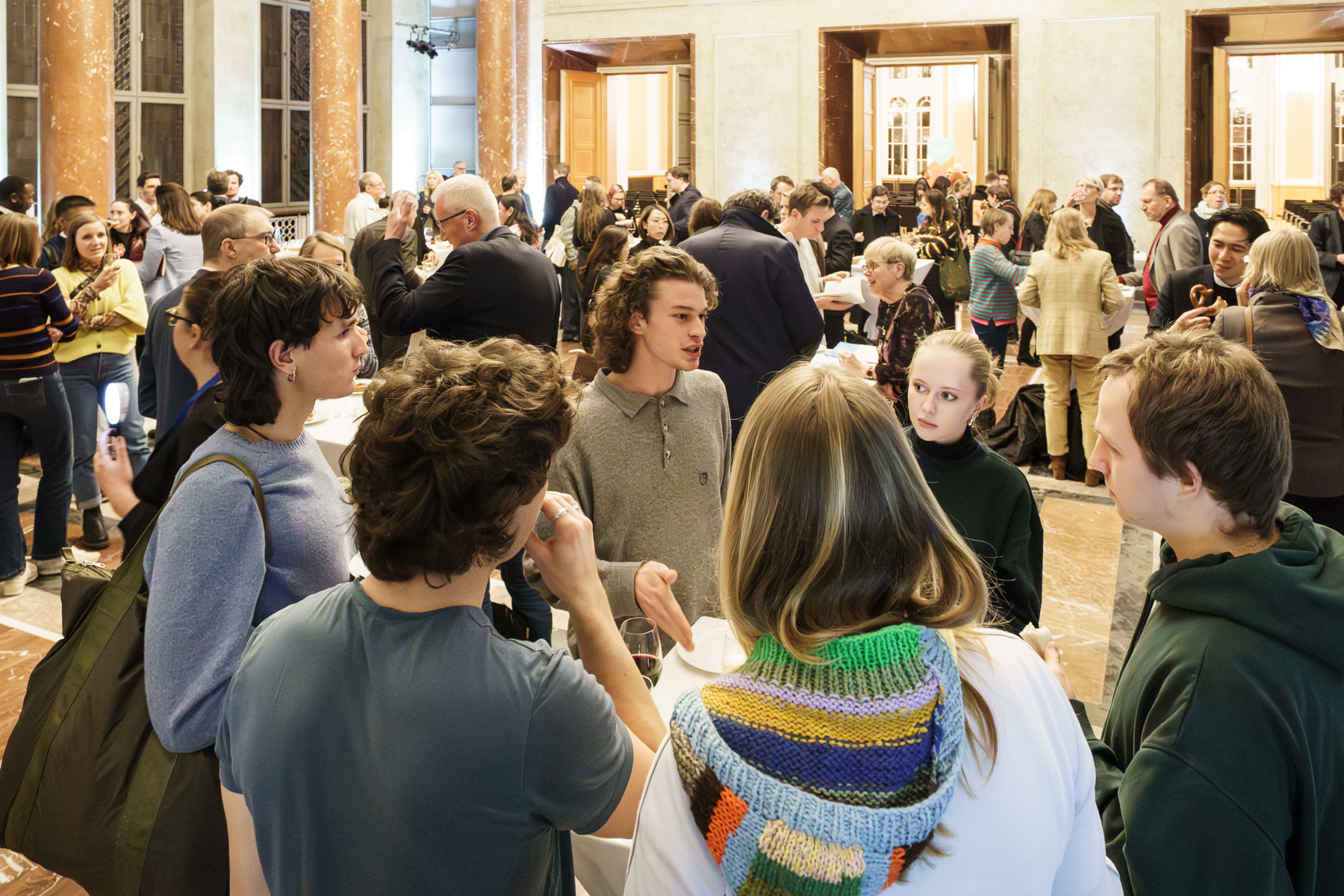ValEUs Policy Brief no. 5 – Discrimination against Gypsy, Roma and Traveller (GRT) people in the EU (Verena Post, Miriam Wilke, Madita Hardegen)

In this fifth issue of the series, Verena Post, Miriam Wilke and Madita Hardegen discuss discrimination against Gypsy, Roma and Traveller people in the EU.
Discrimination against Gypsy, Roma and Traveller (GRT) people in the EU
– A Problem of Value Interpretation and
Political Practice
By Verena Post, Miriam Wilke, Madita Hardegen
A publication by the Jean Monnet Policy Network “ValEUs”
No. 5 | 25th June 2025
Read the Full Issue (click on the image):

Executive Summary
Despite the EU’s formal commitment to equality, Gypsy, Roma and Traveller (GRT) communities across Europe continue to face systematic antigypsyism and exclusion in key areas such as education, employment and healthcare. Many current initiatives remain symbolic and have limited impact due to weak enforcement and accountability. This policy brief assesses four strategic approaches to promoting inclusion against the criteria of relevance, effectiveness, coherence and EU added value. The findings suggest that only a comprehensive, long-term strategy combining structural reforms, participatory governance and robust monitoring can bridge the gap between EU values and the reality of the lives of GRT people.
//
About the authors:
Verena Post is a master’s student in European Studies at the Europa-Universität Viadrina. She previously completed a bachelor’s degree in music business and then worked for several years in project management at a cultural institution and as a freelancer in the music scene. She is deeply committed to social justice, advocating for an inclusive and equitable society while focusing on the structural challenges faced by marginalized groups.
Miriam Wilke is pursuing a Double-Master’s degree in European Studies at the European University Viadrina and Sciences Po Strasbourg, specializing in political science. She holds a double bachelor’s degree in French culture, language and literature, and political science. In addition to her studies, she works freelance in the social sector, where she is involved in association-based projects on social inclusion and minority rights. Miriam’s research interests lie at the intersection of EU policymaking and civic engagement. Her interdisciplinary background in cultural studies, social policy, and political science enables her to combine theoretical analyses with practical insights into structural inequalities and the empowerment of marginalized communities in the EU context.
Madita Hardegen is a master’s student in European Studies at Europa-Universität Viadrina. She holds a bachelor’s degree in Human Geography and Urban Planning. She has experience working on education and empowerment projects focused on combating anti-Black racism, as well as in community work, project administration, and refugee support initiatives in Germany. Additionally, she has been involved in humanitarian aid efforts in Greece. Her research interests are EU-ECOWAS international relations and EU securitization policies regarding Islamic terrorism in Western Africa within a postcolonial framework.
About the Project
ValEUs brings together 20 universities from five continents, combining their strong expertise in EU studies across a wide range of academic disciplines. The Jean Monnet Network will foster joint research capacities, develop innovative teaching collaboration, and engage in societal policy debate to establish impactful policy recommendations. ValEUs is funded by the Erasmus+ programme of the European Commission (2024-2026).
Imprint
ValEUs. Research & Education Network on Contestations to EU Foreign Policy

Funded by the European Union. Views and opinions expressed are however those of the author(s) only and do not necessarily reflect those of the European Union or the European Education and Culture Executive Agency (EACEA). Neither the European Union nor EACEA can be held responsible for them.
Project number: 101127800
Email: contact@valeus.eu
Website: https://valeus.eu/
//
Die Rubrik EAB Impulse bietet Meinungen und Analysen zu aktuellen Entwicklungen in Europa. Die Beiträge spiegeln allein die Perspektiven der Autorinnen und Autoren wider und laden zum Nachdenken und Diskutieren ein. Weitere Informationen zur Arbeit der Europäischen Akademie Berlin und zu ihren Angeboten finden Sie unter:
Homepage: www.eab-berlin.eu | Newsletter: www.eab-berlin.eu/newsletter
Partner


